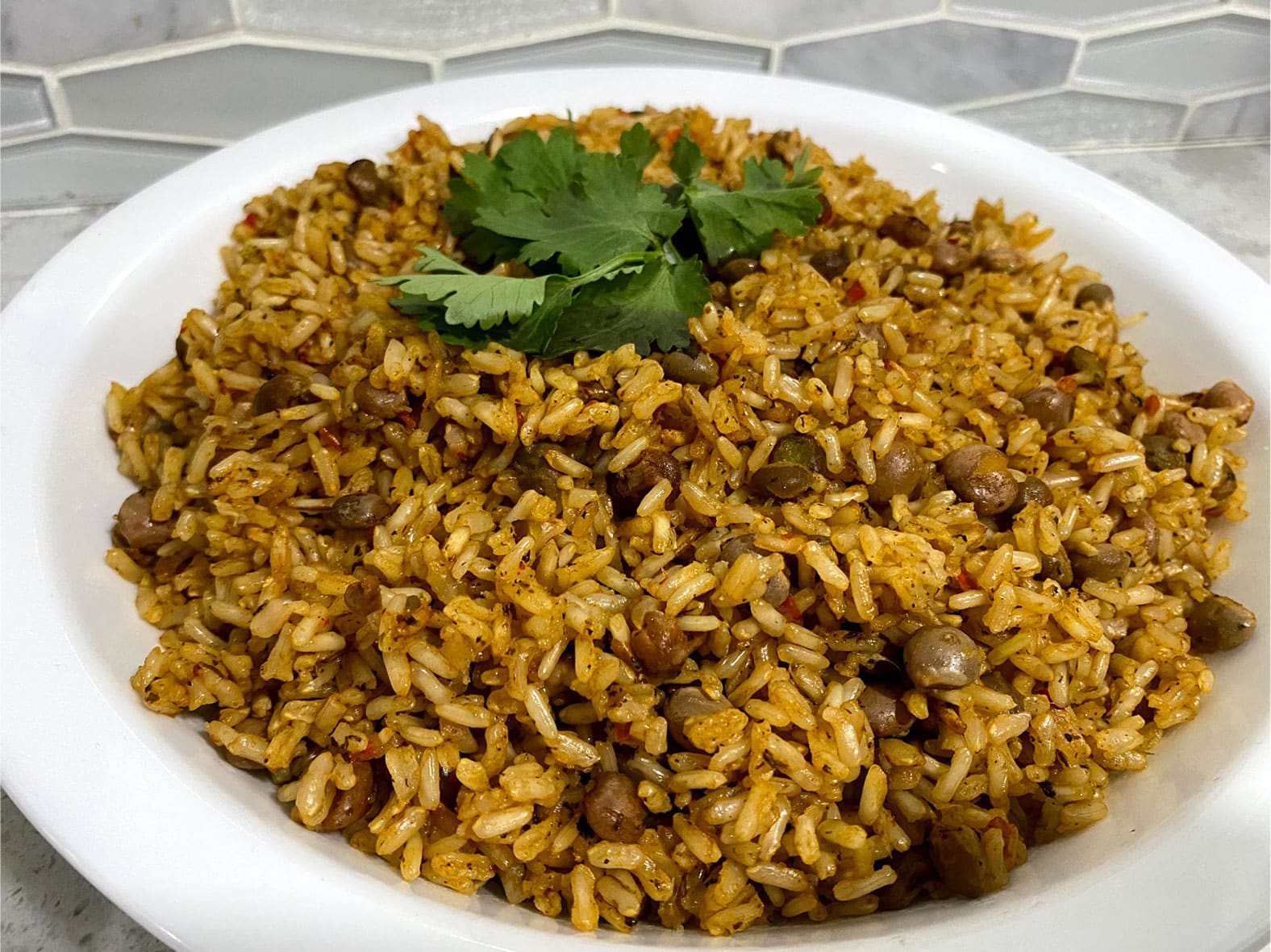FORMAL 1
1/360
Earn XP
Description and Tags
Name | Mastery | Learn | Test | Matching | Spaced | Call with Kai |
|---|
No analytics yet
Send a link to your students to track their progress
361 Terms
He has to talk to them
🔔INFORMAL🔔
Él tiene que hablar con ellos
( hablá )
What’s up ; What’s going on
🔔INFORMAL🔔
Que lo que
Try again
🔔INFORMAL🔔
Inténtalo otra vez
( in - TÉN - ta - lo )
I’m just relaxing playing my game
✅PROPER✅
Estóy tranquilo jugando
How many times do I have to tell you
🔔INFORMAL🔔
Cuántas veces tengo que decírtelo
( de - seer - te - lo )
Cuántas Veces = How many times
Decir = To say, To tell
Stay right there I’ll come get you
🔔INFORMAL🔔
Quédate ahí que yo te busco
( KE - da - te )
Yo te busco = I’ll come get you
Quédate = Stay there
Ahí = there
I told him not to do that
I told her not to do that
✅FORMAL✅
Yo le dije que no hiciera eso
( ee - SYE - ra )
Yo le dije = I Told him ; I Told her
Hiciera = Would make, Would do, Did
We’re almost there
🔔INFORMAL🔔
Estamos casi ahí
We’ll be there in a couple seconds
🔔INFORMAL🔔
llegamos en par de segundos
Be careful you’re going to hurt yourself
🔔INFORMAL🔔
Ten cuidado, te va a hacer daño
( Cui - dao ) ( rompé )
Cuidado = Watch out
Have a good one
🔔INFORMAL🔔
Que te vaya bien
( BÁ - ya )
Bien = Fine, Good
This way you can
🔔INFORMAL🔔
Así tú puedes
I was calling you to see where you
were, but you weren’t answering
✅PROPER✅
Yo te estaba llamando para ver dónde tú estaba, pero tú no contestaba
llamando = calling
Estaba = Was, Were
Cogiendo = Taking, Catching, Picking up
They WERE
❗PAST TENSE❗
📌Used for:
Temporary actions
Conditions
States —>past tense
Ellos estaban
( eh - yo - eta - ban )
Yuck ; Gross
✅Used for:
Expressing disgust , repulsion ,
rejection toward something
unpleasant in smell , taste , look , sound
Guácala
( Guá - ca - la )
For a second
✅FORMAL✅
Por un segundo
( Pol )
What are you looking for over there
🔔INFORMAL🔔
Que tú ta buscando por ahí
( boo - SKAN - doh )
Buscando = Looking for, Searching for
I’m sweating like crazy , It’s way too hot in here
✅PROPER✅
Estoy sudando como un loco, aqui está demasiado caluroso
(kah - loo - ROH - so)
Demasiado = Too much; Too many
Adentro = Inside
Caluroso = Very hot
How’s it going
How’s it going at work
How’s it going at home
🔔INFORMAL🔔
Cómo te va
Cómo te ve el trabajo
Cómo te va por la casa
How much was it?
✅Formal✅
📌 Used for:
To ask about Money or Price in the —
Past Tense
Cuánto fue
✅PROPER✅
I can’t talk right now, I’ll call you back In a little bit
🔔INFORMAL🔔
No puedo hablar ahora, te llamo ahorita
( o - ree - ta ) —— ( a - Ó - ra )
Hablar = To talk
When did that happen?
✅PROPER
💡 Hint:
This is a common Dominican way to ask for the exact time something went down.
Cuándo fue que pasó eso
I’m on my way home
✅PROPER✅
Estoy de camino a mi casa
Camino = Path, Road, Way, I walk
Casa = House
I’m leaving now
✅PROPER✅
Ya me voy
That way you’d be able to
✅FORMAL✅
📌 Used for:
To suggest a possibility
Or offer a helpful way to do something
Así usted podría
( po - dria )
Dam ; Shit ; Fuck
❌CURSE WORD❌
Coño
How are you
🔔INFORMAL🔔
FAMILY
FRIENDS
PEOPLE YOU KNOW
Como tú tá
I’m still
📌Used for:
Saying you are still doing something
or in a certain state
followed by an action or condition
✅FORMAL✅
Todavía estoy
Beneath ; Under
✅PROPER✅
Debajo de
Literal translation is “under of”
You’re right
🔔INFORMAL🔔
Tú tienes razón
Razón = Reason; Cause; Right
We arrived ; We’ve arrived
✅PROPER
📌Used for:
Also used informally to mean ;
“We made it!” or “We pulled up!”
llegamos
( Ye - gah - moe )
I’m going
✅FORMAL✅
📌Used for:
To say I’m going ; I’m on my way
or —
You’re in the act of going somewhere
💡Hint:
Use when —
someone asks where you are
Or if you’re coming.
Estoy yendo
Since how long have you been feeling like this?
🔔INFORMAL🔔
Desde cuándo tú te siente así
( DEHZ - deh )
Desde - From; Since
Cuándo - When
Así - Like this; Like that ; This way

Frying pan
Sartén
It ; Him ; You
(m)
✅FORMAL✅
📌Used for:
As a direct object pronoun —
“it” / “him” / “you” (m).
As a neuter article: “the” (for abstract ideas).
💡 Hint:
Think “it” / “him” when referring to —
a person or object
And “the” when talking about a
concept
lo
Can you go downstairs and grab
me a _____
🔔INFORMAL🔔
Puedes bajar y traerme un(a) _____
( ba - JÁR )
Do you want to see if she wants to come with us?
🔔INFORMAL🔔
Quieres ver si ella quiere venir con nosotros
( be - ni ) - ( no - so - tro )
Was ; Were → (temporary)
❗PAST TENSE❗
📌Used for:
EMOTIONS
LOCATION
ONGOING ACTION IN THE PAST
Estaba
( E - tá - ba )
Everything was fine
❗PAST TENSE❗
Todo estaba bien
Go downstairs
✅PROPER✅
Bájate para abajo
( pa’ )
Abajo = Down, Under, Downstairs
I’m
✅Formal✅
📌Used for:
• CURRENT STATE
• LOCATION
• FEELINGS
• What you’re doing RIGHT NOW
Estóy
What did you say?
✅Formal✅
📌Used for:
To say “What happened “
“What was that” or “Come again”
💡Hint:
Dominicans use this when they’re surprised, didn’t catch what you said
or want you to repeat something spicy, crazy, or bold.
Cómo fue
Put that down ; Leave that alone
🔔INFORMAL🔔
Deja eso
Girl ; Young woman
✅PROPER✅
Muchacha
Do you know him / her
Do you know this person
📌Used for:
“Person” a “Place” a “Thing”
✅PROPER✅
Tú lo conoces,
Tú la conoces
Tú conoces a esta persona
Persona = Person
Conocer = To know - P , P , T

Rice and beans (cooked)
Moro
Going through ; Happening ; Passing
✅FORMAL✅
📌Used for:
Saying something is going through
happening right now , passing by
💡Hint:
Think of it as the Spanish version of “passing” or “going through”
BUT Dominicans can drop it in casual conversation as —
“what’s up” or “what’s going on.”
Pasando
I met ; I knew
❗PAST TENSE❗
✅FORMAL✅
Conocí
That’s been there for awhile
🔔INFORMAL🔔
Eso tiene ahí un rato ya
Rato = a bit, a little while
I arrived ; I got here
✅FORMAL✅
📌Used for:
To say “I arrived” or “I just got here”
when you show up somewhere or —
announce your arrival
llegué
( Yeh-geh )
Stop being disgusting and wash your hands
✅PROPER✅
Deja de estar de asqueroso y lávate las manos
Asqueroso/a = Nasty, Disgusting
Deja = Stop, Let, Leave

Windows
Ventanas
( Ben - tá - na )
Leave it alone and keep walking
✅PROPER✅
Déjalo tranquilo y sigue caminando
( DE - ha - lo )
Caminando = walking
Deja = Let, Leave, Stop
Ahí = There (close by)
What’s his name
What’s her name
🔔INFORMAL🔔
Cómo él se llama
Cómo ella se llama
I never said that to you, what do you mean?
✅PROPER✅
Nunca te dije eso, cómo así ?
( di - he )
I have to go
I have to see, I’ll let you know
✅PROPER✅
Tengo que irme
Tengo que ver te aviso
Tengo = I have
Ver = To see

The body
El cuerpo
Give me a second I’ll be right back,
I have to get something
🔔INFORMAL🔔
Dame un segundo ya vengo, tengo que buscar algo
( bus - cá )
Algo = Something

To die dreaming
Morir Soñando
( Mo-ríh soñando )
Do you know if the bathroom is around here?
🔔INFORMAL🔔
Tú sabes si el baño está por aquí
I thought it was over there ?
✅PROPER✅
Yo pensaba que estaba allá
Pensaba = thought
Estaba = was / were
Allá = over there
What do you want to do for diner
✅PROPERl✅
Que tú quieres hacer pa’la cena
Hacer = To do, To make
Cena = Dinner
Go ahead keep going
Keep moving forward
✅PROPER✅
💡Hint:
It’s a word that represents Dominican
attitude: Moving forward, no matter what
Dale pa’lante
Sigue pa’lante
Pa’lante = Forward, Ahead, Keep going
It’s on top of the dresser
✅PROPER✅
Está arriba del gavetero
( ga - be - té - ro )
Arriba = Up, Above, Upstairs, On top
Gavatero = Dresser
How’s it going
✅USTED FORM✅
Cómo le va
Let’s go! we’re running late already
Let’s go I don’t have all day for this
✅PROPER✅
Vamos que vamos tarde ya
( Bah - mo )
Vamos no tengo todo el día para esto
Vamos = Let’s go , We go
She said that she was on her way
✅PROPER✅
Ella dijo que venía de camino
( be - ni - a )
That looks really good on you, you should wear it more
🔔INFORMAL🔔
Eso te queda bueno , póntelo más veces
( KYEH - dah )
Are you okay
it’s okay don’t worry
✅PROPER✅
Tú está bien
Está bien no te apure
Bien = Fine, Good, Okay
Friday
✅PROPER✅
Viernes
I haven’t left yet I’m still here
🔔INFORMAL🔔
Todavía no me he ido, todavía estoy aquí
( e ) + ( í - do )
Ido = Left, Gone, Went
Im still driving
🔔INFORMAL🔔
Sigo guiando
( gwi - an - do )
Sigo = I continue, I keep doing something
There’s nothing in the house to eat
✅PROPER✅
Aquí en la casa no hay nada para comé
Casa = House
Aqui = Here
Comida = Food
Monday
Lunes
To give
💡Hint:
Think of it as “give” but in Dominican talk it can mean way more from —
handing something over to
“beating” or “throwing”
to hit , to happen , to cause , or —
to allow
Dar

Blinds
Persianas

Dominican burger
Chimi
To go ; Take out
✅PROPER✅
Pa’ llevar
Calm ; Relax —> (f) (m)
✅FORMAL✅
Tranquila , Tranquilo
A ; One —> (m) (f)
✅PROPER✅
Un , Una
Are you making anything for dinner tonight ?
✅PROPER✅
Tú vas a hacer algo pa’la cena esta noche
Hacer = To do, To make
Cena = Dinner
Hoy = Today
I haven’t been able to go to sleep
✅PROPER✅
No he podido dormir
( podío )
Dormir = to sleep
Podido = been able to
Of ; About ; From
✅FORMAL✅
De
What’s the weather like outside
What time is it
✅PROPER✅
Cómo está el clima afuera
Que ahora es
Tiempo = Time , Weather 🌧
if you don’t want it throw it away
Throw it away in the trash can
✅PROPER✅
Si tú no lo quieres bótalo
Bótalo pa’l zafacón
Bótalo = Throw away, Get rid of
Where are you going
✅FORMAL✅
Para dónde tú vas
Vas = You’re going, You go
Do you need help
Do you need help with anything
Do you need help with that
✅PROPER✅
Necesitas ayuda
Tú necesita ayuda con algo
Necesitas ayuda con eso
Tú necesitas = Do you need, You need
Cara = Face
Ayudar = To help
I’m full
✅PROPER✅
Estóy lleno
Until ; Up to ; Even
✅FORMAL✅
📌Used for
In greetings or goodbyes, it’s super common:
👉 “_____ luego” = See you later
👉 “_____ mañana” = See you tomorrow
💡Hint:
It’s a very flexible word — used in
Time ; Place and even to —
emphasize extreme situations
You’ll hear it in greetings,
exaggerations, or just everyday talk.
Hasta
Good Morning
✅PROPER✅
Buenos Días
I’m tired as hell I didn’t get any sleep last night
✅PROPER✅
Estoy cansado del diablo, anoche no pegué un ojo
( pe - gé )
Cansado = Tired, Fed up
Anoche = Last night
Pegué = I hit, I stuck, I glued,
I attached
Giving
✅PROPER✅
Can also mean hitting or dealing —
something, depending on the context
Dando
I feel ; I sit down
✅FORMAL✅
📌Used for:
To say “I feel” or “I sit down” —
depending on the sentence.
In Dominican Spanish, it’s most
commonly used to —
express feelings or emotions.
Me siento
Sunday
✅PROPER✅
Domingo
To drink
✅PROPER✅
Beber
( Be - bel )
Speaking ; Talking
✅PROPER✅
Hablando
We ; Us
✅PROPER✅
Nosotros
Yes ; If
✅PROPER✅
Sí
His ; Her ; It’s ; Their ; Your
✅FORMAL✅
📌Used for:
Showing possession in formal speech
or when referring to someone else’s
belonging.
💡Hint:
Formal = Your, his, her, its, their.
Informal = Mostly used for third person possession —
“his / her / their” — NOT for “your”
Su
You’re always throwing food away then saying you’re hungry
🔔INFORMAL🔔
Tú siempre botas la comida y después dices que tienes hambre
Botar = to throw out
Siempre = Always